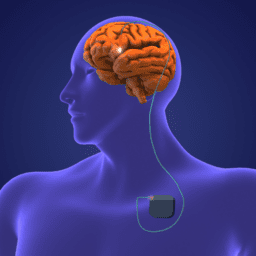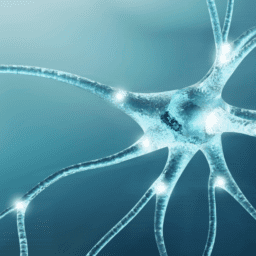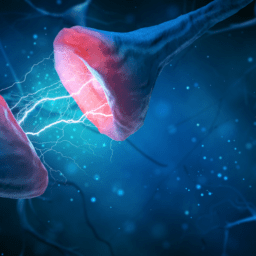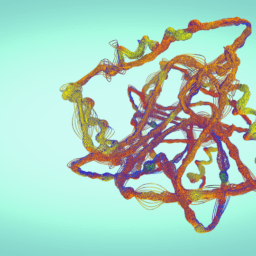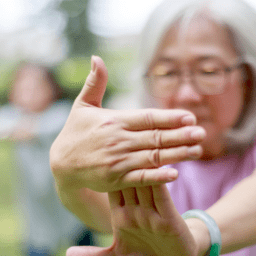The latest developments in Parkinson’s vaccine research. New estimates of Parkinson’s diagnoses in North America. Parkinson’s and the common cold. Sergey Brin’s billion-dollar gift to Parkinson’s research. Parkinson’s and the outdoors. Here’s what’s new in the world of Parkinson’s this month.
PARKINSON’S ARTICLES
- In a study published in the International Journal of Molecular Sciences, researchers share new details about a potential preventive vaccine for Parkinson’s and Lewy body dementia. The experimental vaccine, called PV-1950R, stimulates immune responses against three regions of the alpha-synuclein protein and has been determined to be the most effective of four DNA vaccines in previous mouse-model research. The vaccine is now moving into late-stage preclinical research.
- A study published in npj Parkinson’s Disease found that the prevalence of Parkinson’s diagnoses was almost 50% greater than previously reported and currently used for clinical, research, and policy decision-making.
- Findings from a study published in Brain suggest that blood levels of certain small vesicles may be biomarkers of cognitive impairment in Parkinson’s. Researchers at the National Institute on Aging and the New Zealand Brain Research Institute found that changes in the levels of vesicles that carry Parkinson’s-linked proteins (such as alpha-synuclein, phosphorylated tau, or insulin receptor substrate 1) distinguished people with Parkinson’s from people without Parkinson’s.
- In a short communication published in Parkinsonism & Related Disorders, researchers from Japan shared data showing that people with early-stage Parkinson’s may be approximately 70% less likely to catch the common cold than people with other neurological conditions.
- A study that reviewed hospital records for nearly 62 million Medicare beneficiaries aged 65 years or older suggests that spending time in outdoor green spaces may reduce the risk of Parkinson’s-related hospitalization among older adults.
- In the largest microbiome study conducted at the highest resolution, researchers at the University of Alabama at Birmingham found a wide imbalance in microbiome composition (with more than 30% of gut microbial species found at abnormal numbers) in people with Parkinson’s. The study was published in Nature Communications.
- Through a special supplement to the Journal of Parkinson’s Disease, Parkinson’s experts discuss the latest research linking immune activation and neuroinflammation to Parkinson’s. They also discuss potential treatment strategies that target the immune system with the aim of minimizing or even reversing neurodegeneration.
- A study by researchers at Duke University and published in JID Innovations found that among people diagnosed with melanoma, the tumor is twice as likely to be found on the head or neck if the person is also living with Parkinson’s.
- Data from a small study in South Korea showed a significant association between prediabetes and poorer cognition in people with Parkinson’s.
- Another study from South Korea found a significant association between lower blood levels of total cholesterol and low-density lipoprotein cholesterol (LDL-C)and a higher risk of developing Parkinson’s. The study also found that higher blood levels of high-density lipoprotein cholesterol (HDL-C), or “good” cholesterol, were associated with a lower risk.
- Results from a mouse model study published in Scientific Reports challenge a long-held view about the ways alpha-synuclein aggregates lead to Parkinson’s. The study found that the toxic impacts of alpha-synuclein build-up are independent of the production of the alpha-synuclein by neurons themselves and are driven by their effects on mitochondria.
- A federal appeals court recently granted the Environmental Protection Agency’s (EPA) request to reconsider evidence suggesting that paraquat (a commonly used herbicide) causes brain damage and additional health risks, including the development of Parkinson’s.
- Researchers from the Neurobiology of miRNA team at the IIT-Italian Institute of Technology have discovered a correlation between a class of small RNA molecules—piRNAs—and brain inflammation. The findings lay the groundwork for the development of new diagnostic technologies that can detect neurodegenerative conditions early on. The research was published in EMBO Reports.
- In Brain Research, researchers at The First Affiliated Hospital of Zhengzhou University in China provide “direct neurochemical evidence” that explains sleep benefit, when people with Parkinson’s experience fewer symptoms upon waking than they do later in the day. The new study shows that sleep benefit is associated with higher levels of dopamine transporter proteins in the brain’s putamen.
PARKINSON’S treatments and THERAPIES
- BioVie announced positive results from its Phase 2 trial of NE3107. Results showed that people with Parkinson’s who were treated with a combination of NE3107 and levodopa showed greater motor control than people with Parkinson’s who were treated only with levodopa. NE3107 is an oral small molecule, blood-brain permeable compound that has shown potential to inhibit neuroinflammation and insulin resistance.
- An article in The Guardian discusses upcoming clinical trials that will investigate the ability of stem cells, grown in laboratory cultures and transformed into dopamine cells, to slow the progression of Parkinson’s.
- The biotechnology company Alector, Inc., recently reported safety and biomarker data from a first-in-human, randomized, double-blind, placebo-controlled Phase 1 healthy volunteer study of AL101, a human monoclonal antibody that blocks the sortilin receptor to increase progranulin levels. Low progranulin levels have been linked to Parkinson’s and similar neurodegenerative conditions; by blocking the sortilin receptor and increasing progranulin, AL101 may have the ability to prevent nerve cell death and Parkinson’s progression.
- Researchers at Charité – Universitätsmedizin Berlin have developed an algorithm that may increase the efficiency of deep brain stimulation (DBS). Their study, published in The Lancet Digital Health, showed that a newly developed algorithm created stimulation parameter settings that led to greater improvement of motor symptoms.
- Results from a worm model study of Parkinson’s showed that krill oil can protect dopaminergic neurons from aging-related degeneration, decrease alpha-synuclein aggregation, and improve dopamine-dependent behavior and cognition.
- The West Virginia University Rockefeller Neuroscience Institute has begun a randomized, double-blind, sham-controlled clinical trial to evaluate the safety and efficacy of a new innovative gene therapy that is delivered to the brain’s subthalamic nucleus, which is currently thought to play a significant role in the pathophysiology of Parkinson’s.
- Japan-based pharmaceutical company Eisai and Washington University School of Medicine in St. Louis have entered into a comprehensive research collaboration agreement with the goal of creating multiple novel therapeutic candidates, as well as discovering and identifing biomarkers, within the next five years.
- Researchers at Stanford University have developed gloves that, by delivering a particular pattern of vibrations, can help “reset” nerves that are impacted by Parkinson’s. One participant who has used the gloves recently ran the NYC marathon thanks to their therapeutic benefits.
- The clinical-stage biopharmaceutical company Seelos Therapeutics shared in vivo data that demonstrated that a single dose of SLS-004 (a novel epigenome-editing gene therapy) downregulated the production of alpha-synuclein, suggesting that it may have potential as a Parkinson’s-modifying therapy.
- Zhittya Genesis Medicine announced positive results from the first six months of its first-in-human study of FGF-1, which is administered into the brain through a novel intranasal process. Analysis of videos, participant surveys, and observations from the principal investigator all showed promising signs of motor and cognitive improvement through FGF-1 therapy.
- CuraSen Therapeutics shared positive top-line safety, tolerability, and proof of concept data from its Phase 2, randomized, double-blinded, two-period crossover study investigating CST-103 in people living with Parkinson’s or mild cognitive impairment (MCI). Treatment with CST-103 (an oral, brain-permeant beta2 adrenoceptor agonist) was found to be safe, well-tolerated, and effective at improving several measures of cognition.
PARKINSON’S LIVING WELL STORIES
- Forbes highlighted the philanthropic work that Google cofounder Sergey Brin has done for the Parkinson’s community. To date, Brin has given $1.1 billion to fund Parkinson’s research, making him the largest individual donor to Parkinson’s research and one of only a handful of people alive to have donated more than $1 billion toward a specific medical condition.
- The “Parkinsingers” choir at JFK Johnson Rehabilitation Institute helps people with Parkinson’s improve their speech, swallowing, and so much more. “It’s 90 minutes a week that I don’t have to think, I have Parkinson’s,” group member Donna Mastropolo said.
- Artwork by Mary Smeallie, who was diagnosed with Parkinson’s 10 years ago, was the highlight of the art exhibit “Persistence,” held at the Noah Webster House & West Hartford Historical Society.
- Jessica Krauser’s friends and family began a 5k fundraiser in her hometown of Columbus, OH, to show support and encouragement after her diagnosis of young onset Parkinson’s (YOPD) and, last year alone, raised $93,000 for Parkinson’s research.
PARKINSON’S SURVEYS, CLINICAL TRIALS, and volunteer opportunities
- YOPD Survey – A doctoral student in occupational therapy at Russell Sage College is conducting a research study to determine the impact of Young Onset Parkinson’s Disease on cognition, quality of life, and life roles. If you received a Parkinson’s diagnosis before age 60, you can learn more and complete the survey here.
- Phoenix-Area Residents – Deep Brain Stimulation (DBS) and Exercise Study at Barrow Neurological Institute – This study aims to help researchers learn more about how aerobic exercise affects symptoms of Parkinson’s and quality of life in people who have DBS. They will also look at brain wave activity using the Medtronic Percept DBS device in order to better understand what changes in the brain might be caused by exercise and how that affects Parkinson’s symptoms. Reach out to Markey if interested.
- Colorado Oral Strengthening Device – The University of Colorado is looking for adults with Parkinson’s to participate in a research study exploring how a novel low-technology device can achieve an increase in tongue strength comparable to standard-of-care exercise using tongue depressors but with the kinematics and simple biofeedback of existing high-cost devices. Research has shown that tongue resistance exercises paired with biofeedback have resulted in improved tongue strength to support chewing, control of food and liquid in the mouth, and propulsion of material for a swallow. Learn more and enroll here.
- Do you have early-stage Parkinson’s? The Orchestra Study is a clinical research study to evaluate the use of an investigational medication called UCB0599 in men and women with early-stage Parkinson’s. You can learn more and see if you qualify here.
- PD GENEration – The Parkinson’s Foundation has announced a major expansion of its national study to make genetic testing and counseling more available for people with Parkinson’s. The study (NCT04057794) hopes to enroll 15,000 people in all 50 US states, Puerto Rico, and the Dominican Republic. Details are available here. For questions about enrollment, email genetics@parkinson.org.
- Parkinson’s Progression Markers Initiative – In an expanded study, the Parkinson’s Progression Markers Initiative (PPMI) is currently working to enroll up to 100,000 people with and without Parkinson’s. The study team is especially seeking to enroll people diagnosed with Parkinson’s in the past two years and who are not yet on treatment, as well as people 60 and older who aren’t living with Parkinson’s but have a risk factor for it (such as a close relative with Parkinson’s, a known Parkinson’s-associated mutation, and/or REM sleep behavior disorder). The observational study is also enrolling people with no known connection to Parkinson’s to serve as a control group. Learn more here.
- TOPAZ (Trial of Parkinson’s and Zoledronic Acid) – Caroline Tanner, MD, PhD, is recruiting participants for a new remote clinical trial led by a team of Parkinson’s experts at UCSF in partnership with researchers from across the country. The study aims to help people with Parkinson’s or parkinsonism maintain their independence by reducing the risk of hip fractures. The study will test if zoledronate, an FDA-approved medication for osteoporosis, can prevent fractures in people with Parkinson’s, whether or not they have osteoporosis. To learn more, visit the study website at TOPAZstudy.org, email TOPAZ@ucsf.edu, or call (415) 317-5748.
- Join Google and LSVT in Project Euphonia – LSVT Global has partnered with Google on an exciting research project called Project Euphonia to help improve automatic speech recognition software for people with speech disorders. These disorders may make using devices like Google Home, The Nest, and other Smart devices, Siri, Alexa, or speech-to-text frustrating. To do this, LSVT Global needs samples of disordered speech to train the system. You are encouraged to enroll if you’ve been diagnosed with Parkinson’s, PSP, MSA, or CBD with mild, moderate, or severe speech disorders. Participation is easy, can be done from your own home, and can earn you a $60 gift card! Learn more here.
- G2019S LRRK2 Parkinson’s: Increasing Awareness and Genetic Testing Program – This program aims to support the development of precision medicine intended to treat people with genetic forms of Parkinson’s. Up to 15% of cases of Parkinson’s disease have an underlying genetic cause, yet many people have never had genetic testing. This research program will be very important in supporting the future development of a new oral precision medicine treatment for one of the most common genetic forms of Parkinson’s, aimed at slowing its progression. To learn more, visit geneticpd.com.
- A PD Avengers research group is undertaking a new project called Sparks of Experience, designed to be more systematic about collecting and considering the experiences and ideas that come from the curious minds of people living with Parkinson’s. “In the past, these sometimes quirky ideas inspired by lived experience have turned into significant new directions for research. It could be said we are trying to capture serendipity,” the team says. To learn more and get involved, see the flyer here.
- Game-based Exercise Project – Researchers at the University of Auckland are investigating how games can be used as potential rehabilitation systems. This project aims to develop suitable game-based exercise experiences to help people living with Parkinson’s. If you are 45 or older, living with a chronic condition such as Parkinson’s, and/or are experiencing age-related health conditions, you are invited to participate in a survey that will help the researchers to understand the community’s interests in games and gameplay in the context of exercise and rehabilitation. To learn more and take the 15-minute survey, see the flyer here.
- SPARX3 – A Phase 3 Clinical Trial about Exercise and Parkinson’s – This research team is currently seeking volunteers to participate in a clinical trial about the effects of aerobic exercise on people with Parkinson’s. Learn more and see if you qualify here. For more details, contact Katherine Balfany at SPARX3@ucdenver.edu.
- PAIRing Up – If you are a person with Parkinson’s or a care partner to someone with Parkinson’s, you are invited to participate in an online survey to address neuropsychiatric (cognition, depression, anxiety) concerns in Parkinson’s. The survey aims to learn about the needs and priorities for clinical care, education, support, and research related to neuropsychiatric symptoms. To learn more and participate, click here to download the flyer.
- A multidisciplinary research team in the UK is investigating how to best use music to help people with Parkinson’s manage symptoms related to movement and mood. This includes research about music for dancing and is the first study to incorporate the new Dance Sophistication Index for people with Parkinson’s. To learn more and take a 30-minute survey, click here.
- The University of Oulu and collaborators from Aalborg University, Fraunhofer University, the University of Manchester, the University of Glasgow, the University of Lisbon, and the University of Melbourne, are conducting a survey for people with Parkinson’s and Parkinson’s care partners about self-care. Complete the survey here to share your self-care strategies and techniques. You can also review ideas submitted by others and add them to your own self-care toolbox.
- Home-based Exercise and Cognitive Behavior Therapy – University of Alabama in Huntsville
- Speech and Telemedicine Study – The Purdue Motor Speech Lab
- Parkinson’s and Service Dogs – University of Groningen, Netherlands
- Neurology Study Interest Registry – University of Rochester
- Park Test – University of Rochester
For more of what’s new in Parkinson’s news, check out our full series here.
WANT MORE PRACTICAL ARTICLES LIKE THIS?
You can find much more in our Every Victory Counts® manual. It’s packed with up-to-date information about everything Parkinson’s. Request your free copy of the Every Victory Counts manual by clicking the button below.
Thank you to our 2022 Peak Partners, Amneal, Kyowa Kirin, and Sunovion, as well as our Every Victory Counts Gold Sponsor AbbVie Grants, Silver Sponsor Lundbeck, and Bronze Sponsors Supernus and Theravance for helping us provide the Every Victory Counts manual to our community for free.








